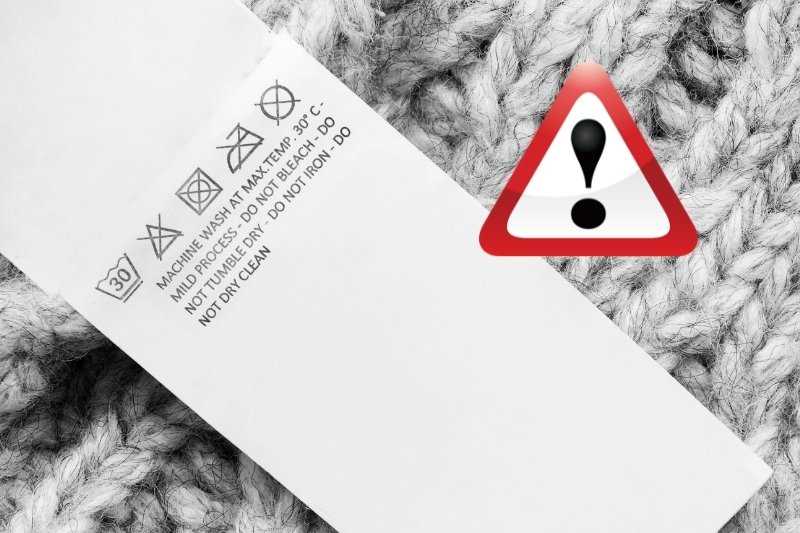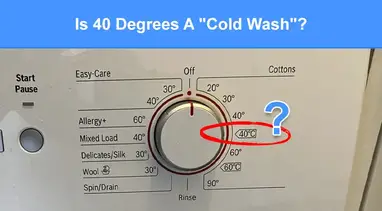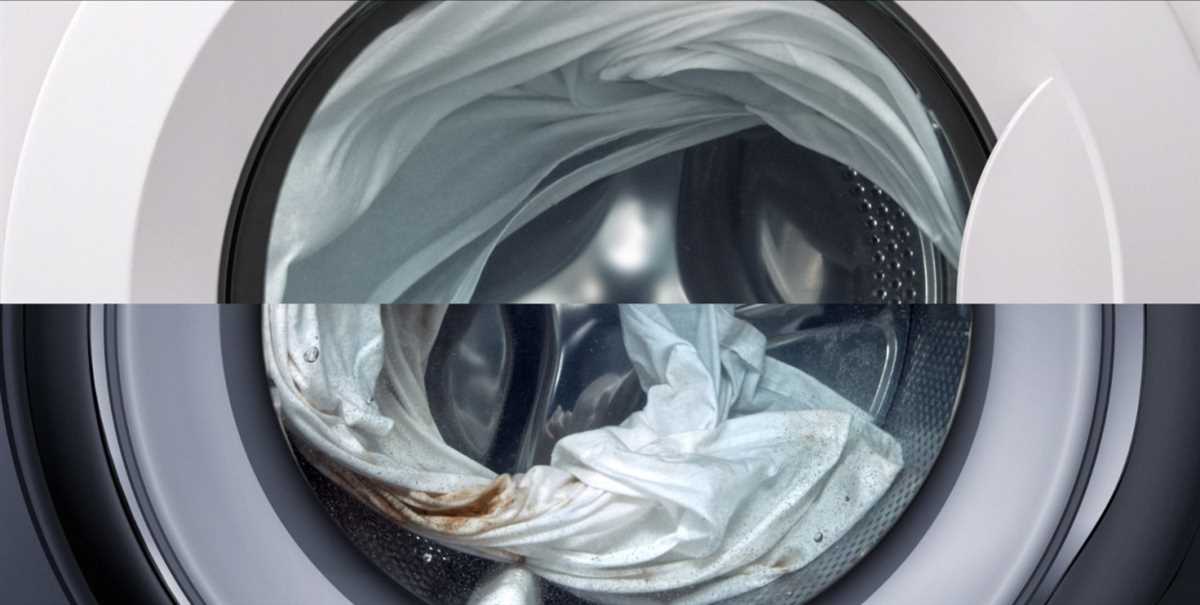




When it comes to washing clothes, the temperature of the water you use can make a big difference. Many people wonder if a wash cycle using 20 degrees Celsius is considered a cold wash. To answer this question, we turned to experts in the field who provided insight into the ideal temperature for different types of fabrics and stains.
According to textile experts, a cold wash is generally defined as using a water temperature below 30 degrees Celsius. However, some experts argue that a temperature as low as 20 degrees can also be classified as a cold wash, as long as it is below the natural body temperature of 37 degrees. This lower temperature is often recommended for delicate fabrics or items with specific care instructions.
“Using a cold wash can help preserve the color and shape of your clothes.”
Despite the debate over what exactly constitutes a cold wash, it is generally agreed upon that using colder water has its benefits. Firstly, it can help preserve the color and shape of your clothes, reducing fading and shrinking. Secondly, a cold wash is more energy-efficient, as heating water requires a significant amount of energy.
However, it’s important to note that not all stains and dirt can be effectively removed with cold water alone. For stains like oil or grease, warm or hot water may be necessary to break down the particles and lift them from the fabric. In these instances, it is recommended to pre-treat the stain before washing, or use a higher temperature setting.
In conclusion, while a wash cycle using 20 degrees Celsius can be considered a cold wash, it is always best to check the care instructions on your clothing labels and take into account the type of stains or dirt you are dealing with. Ultimately, finding the right temperature for your wash depends on the specific garment and your desired outcome.
The Definition of Cold Wash
A cold wash refers to a laundry cycle where the water temperature is set to a lower temperature than the typical warm or hot water settings. While there is no universally agreed-upon temperature range for a cold wash, it is generally considered to be around 20 degrees Celsius or below.
Why use a cold wash?
There are several reasons why people opt for a cold wash:
- Energy Efficiency: Using cold water for washing clothes can help save energy and reduce utility bills, as water heating accounts for a significant portion of energy consumption during laundry cycles.
- Preserving Clothing: Cold water is considered gentler on fabrics, as it causes less shrinkage, fading, and damage compared to hotter water temperatures. This makes it suitable for delicate items, such as woolens, silk, and certain types of synthetic materials.
- Environmental Benefits: Lowering the water temperature for laundry can have a positive impact on the environment by reducing greenhouse gas emissions associated with water heating.
Is 20 degrees considered a cold wash?
While 20 degrees Celsius is commonly acknowledged as the temperature range for a cold wash, some washing machines may label temperatures up to 30 degrees Celsius as cold. It is best to refer to the specific temperature settings on your washing machine to determine the exact temperature range for cold wash cycles.
Tips for washing in cold water:
- Use a cold water detergent specifically designed to clean clothes effectively in lower temperatures.
- Sort your laundry into different loads based on colors and fabric types.
- Avoid overloading the washing machine, as this can prevent proper cleaning.
- Consider using a pre-soak option or longer wash cycle for heavily soiled items.
- Hang or lay flat to dry clothes to prevent shrinking.
In conclusion
A cold wash is a laundry cycle that uses lower water temperatures, typically around 20 degrees Celsius or below. It offers energy efficiency, helps preserve clothing, and has environmental benefits. However, it’s important to refer to your washing machine’s temperature settings for the precise definition of cold wash in your specific appliance.
Effectiveness of Washing at 20 Degrees
Washing clothes at lower temperatures, such as 20 degrees Celsius, has become more popular in recent years due to its perceived environmental benefits. However, there is some debate about the effectiveness of cold washing in terms of cleaning power and removing stains.
1. Environmental Benefits:
- One of the main reasons why many people choose to wash their clothes at 20 degrees is to reduce energy consumption and lower carbon emissions.
- Washing clothes at lower temperatures requires less energy compared to washing at higher temperatures, which can help contribute to a greener lifestyle.
2. Cleaning Power:
- Washing clothes at higher temperatures, such as 40 degrees or above, is generally considered more effective at removing tough stains and killing bacteria.
- However, advancements in detergent formulations and washing machine technology have made washing at lower temperatures more efficient than in the past.
- For everyday clothing items that are not heavily soiled, washing at 20 degrees can still provide satisfactory cleaning results.
3. Stain Removal:
- One of the concerns with washing at 20 degrees is the ability to effectively remove stains.
- Some studies have shown that certain types of stains, such as protein-based stains like blood or grass, may require higher temperatures to be fully removed.
- Pre-treating stains or using stain remover products can help enhance the effectiveness of washing at lower temperatures.
4. Fabric Care:
- Washing clothes at lower temperatures can be gentler on fabrics, reducing the risk of shrinkage, color fading, and damage.
- Delicate or sensitive fabrics, such as wool or silk, may benefit from washing at lower temperatures to prolong their lifespan.
- Always check the care labels and recommendations for each garment before washing at 20 degrees.
Conclusion:
An increasing number of people are opting for washing clothes at 20 degrees Celsius due to its environmental benefits and fabric care advantages. While it may not be as effective as washing at higher temperatures for stain removal, it can still provide satisfactory cleaning results for everyday clothing items. It is important to consider individual needs, fabric types, and stain types when deciding on the appropriate washing temperature.
Energy Savings with Cold Wash
One of the main benefits of washing clothes in cold water is the energy savings it can provide. Here are a few reasons why using a cold wash can help you save energy:
1. Lower Energy Consumption
When you wash your clothes using cold water, your washing machine doesn’t need to use energy to heat the water. Heating water for washing clothes typically accounts for a significant portion of the energy usage during a laundry cycle. By using cold water, you can significantly reduce the amount of energy consumed by your washing machine.
2. Reduced Water Heating Costs
Heating water can be one of the most energy-intensive tasks in a household. By using cold water for your laundry instead of warm or hot water, you can save on your water heating costs. This can lead to substantial energy savings over time.
3. Extended Lifespan of Clothes

Washing clothes in cold water can help extend the lifespan of your garments. Hot water can cause fabrics to fade, shrink, or even break down over time. Cold water is gentler on clothes and helps to preserve their quality and color. By washing your clothes in cold water, you can reduce the need to replace them as frequently, leading to additional energy and cost savings.
4. Environmental Benefits
In addition to the financial benefits, using cold water for your laundry also has positive environmental impacts. By reducing your energy consumption, you are decreasing your carbon footprint and helping to conserve natural resources. Cold washes can contribute to a more sustainable and eco-friendly lifestyle.
Conclusion
Choosing a cold wash for your laundry can provide significant energy savings, reduce water heating costs, extend the lifespan of your clothes, and have positive environmental impacts. Consider making cold washes a regular part of your laundry routine to reap these benefits.
Benefits and Drawbacks of Cold Wash
Washing your clothes with cold water instead of hot water can have its benefits and drawbacks. Let’s explore some of them:
Benefits of Cold Wash:

- Energy Savings: One of the main advantages of cold wash is that it saves energy. Heating water for washing clothes accounts for a significant portion of energy consumption. By using cold water, you can reduce your energy bill and contribute to a more sustainable environment.
- Preservation of Fabrics: Cold water is gentler on fabrics as compared to hot water. It helps prevent color fading and shrinkage, extending the lifespan of your clothes. Delicate fabrics, such as wool or silk, are better suited for cold wash to maintain their quality.
- Stain Removal: Contrary to popular belief, cold water can effectively remove many types of stains. Cold wash is particularly effective against protein-based stains like blood or grass. It helps prevent the stains from setting and makes it easier to remove them later.
- Environmental Impact: Cold wash reduces greenhouse gas emissions associated with hot water usage. By opting for cold wash, you contribute to the conservation of natural resources and help mitigate the effects of climate change.
Drawbacks of Cold Wash:
- Less Effective against Grease: Cold water may not be as effective in removing greasy stains as hot water. Grease and oil are more soluble in hot water, making it easier to break down and remove. For heavily soiled clothes or greasy stains, a hot wash might be more suitable.
- Bacterial Concerns: Cold water wash may not kill bacteria and other microorganisms effectively. Hot water is known to have a sanitizing effect, which is beneficial when washing clothes that may have come into contact with germs or require thorough disinfection.
Overall, cold wash offers several benefits, such as energy savings, fabric preservation, and stain removal, while it may have some drawbacks, including reduced effectiveness against grease and bacterial concerns. It’s essential to consider these factors when deciding whether to use cold or hot water for washing your clothes.
Proper Use and Care for Cold Wash
Proper use and care for cold wash can help ensure optimal results and prolong the lifespan of your clothing. Here are some tips to keep in mind:
1. Sort your laundry
Before starting a cold wash, it’s important to sort your laundry based on color and fabric type. This will help prevent color bleeding and damage to delicate fabrics.
2. Use the right detergent

When washing with cold water, it’s important to use a detergent specifically formulated for cold washes. These detergents are designed to dissolve and work effectively even in colder temperatures.
3. Pre-treat stains

If you have any stubborn stains on your clothing, it’s recommended to pre-treat them before placing them in the washing machine. Cold water alone may not be sufficient to remove certain stains.
4. Avoid overloading the machine

While you may be tempted to stuff as much laundry as possible into the machine, overloading can compromise the effectiveness of the cold wash. It’s important to leave enough space for the water and detergent to circulate properly.
5. Wash delicate items separately
If you have delicate items such as lingerie or fine fabrics, it’s best to wash them separately from heavier and more robust garments. This will prevent any potential damage during the wash cycle.
6. Follow garment care instructions
Always read and follow the care instructions provided by the manufacturer for each garment. Some fabrics may require specific washing instructions or temperature settings.
7. Clean the washing machine regularly
It’s important to regularly clean your washing machine to prevent any build-up or odors. Follow the manufacturer’s instructions for cleaning and maintenance.
8. Air dry or tumble dry on low heat

After a cold wash, it’s best to air dry your clothes or tumble dry them on a low heat setting. This will help maintain their shape and prevent shrinkage or damage caused by high heat.
9. Store properly
Once your clothes are completely dry, store them in a cool, dry place to prevent any moisture or mold from developing.
By following these tips, you can ensure that your cold washes are effective and gentle on your clothes, helping them look their best for longer.
FAQ
Why is 20 degrees considered a cold wash?
According to experts, 20 degrees is considered a cold wash because it is below body temperature and does not remove stains effectively.
Can I use cold water to wash my clothes set at 20 degrees?
Yes, you can use cold water to wash your clothes at 20 degrees. However, keep in mind that cold water may not effectively remove stains or kill bacteria compared to warmer water temperatures.
What temperature is considered warm for washing clothes?
Warm washing temperatures are typically between 30 to 40 degrees Celsius. This temperature range helps in removing stains and killing bacteria effectively without causing damage to the clothing fabric.
Will washing my clothes at 20 degrees shrink them?
Washing clothes at 20 degrees is unlikely to cause shrinkage unless the clothing fabric is prone to shrinking. However, it’s best to check the care instructions on the clothing label to ensure you’re using the appropriate washing temperature to avoid any potential damage.
Can washing clothes at 20 degrees save energy?
Yes, washing clothes at 20 degrees can help save energy compared to washing at higher temperatures. The lower temperature requires less energy to heat the water, resulting in reduced electricity or gas consumption.
What is considered a cold wash?
A cold wash is typically considered to be any wash cycle that uses water below 20 degrees Celsius. It is commonly used to preserve the quality of delicate or sensitive fabrics.
Is 20 degrees Celsius a cold wash?
Yes, 20 degrees Celsius is generally considered a cold wash. It falls within the temperature range commonly used for cold wash cycles to prevent shrinking or damage to clothes.













